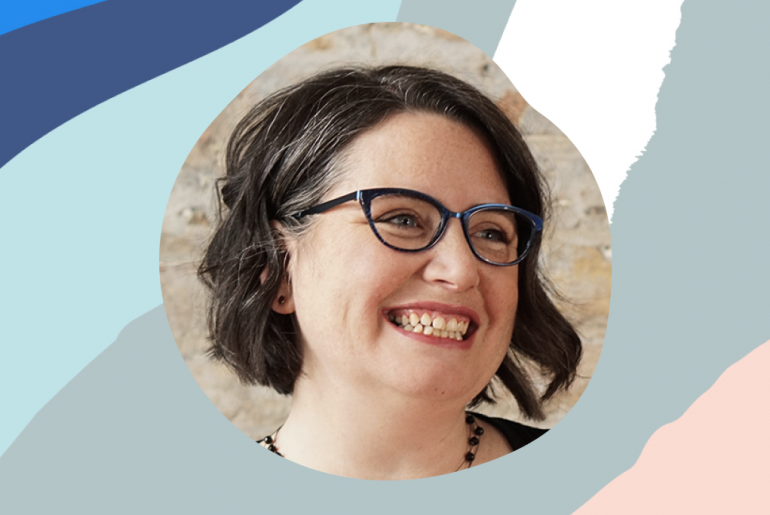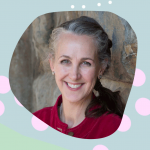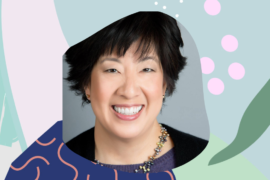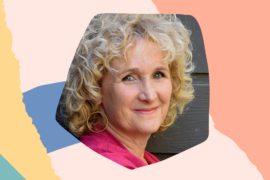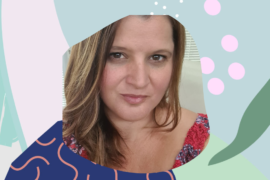Key Takeaways
- How Dayna realized her work in the traditional classroom setting helped “cookie-cutter” kids – and why trying to push kids into boxes that don’t fit them simply doesn’t work.
- What Dayna learned from the failed attempt at online courses – and how this led her to the thriving, effective membership site she now runs.
- The ripple effect of Dayna’s membership site – and why it’s time for you to launch, even if you’re questioning whether or not your idea has the power to change the world.
Free Give
FREE Guide – Launch & Grow a Profitable Membership Site
Ready to reclaim your time and attract more monthly paying customers? Our step-by-step guide will show you how to build a membership site that turns your passion into recurring profit. Click here to download!Memorable Quote
- “If you’re led to tell your story and you’re led to share what’s going on and create a tribe of people that all have been through similar walks together, then you can be that leader. You don’t have to have so much more education to lead that tribe of people.” – Dayna Abraham
Episode Resources
Transcript
Read The Transcript
Shelli Varela: Some of the most powerful membership sites are not about what you teach your members, but about the fact they feel understood. And that is enough to get started.
Stu McLaren: There is a big trend brewing that’s revolutionizing the way business is being done. Big companies like Netflix, Amazon, and Apple are jumping on this too but so are thousands of others in all kinds of markets like photography and calligraphy, fitness, finance, meal planning, lesson planning, dog training, and so many more, and they’re doing it by shifting to a recurring revenue model. Hi. My name is Stu McLaren and for more than a decade I’ve been helping tens of thousands of entrepreneurs generate recurring revenue through membership sites. Join our host, Shelli Varela, as she takes you behind-the-scenes to see how these companies are building a thriving tribe that spends with them every single month. Now, let’s get to today’s episode.
[INTERVIEW]
Shelli Varela: Dayna Abraham, welcome to the It’s a TRIBE Thing Podcast. How are you?
Dayna Abraham: I am good. Thanks for having me.
Shelli Varela: It’s my absolute pleasure. I’m excited to dig into your story, your personal story, and how that led to your membership site. But why don’t you start by telling us who you are, how you serve, and who you were at the very beginning of that journey?
Dayna Abraham: All right. Well, my name is Dayna Abraham and I have a program called Calm The Chaos. And I help out-of-the-box kids and the grown-ups that love them feel connected, understood, and empowered.
Shelli Varela: Brilliant.
Dayna Abraham: When I first started, I didn’t do any of that or know what I was doing. It didn’t start that way at all. I actually was a teacher and I had been in the classroom for about 12 years and I was a parent of a seven-year-old. And I despite having all these awards as a teacher and all these different things as a teacher, at home and at school for my kid, he was struggling and so much so that it became really evident that he didn’t fit in the traditional school setting. And I just felt like a complete flop and failure as a parent. I quit teaching and decided to come home and take care of him and try to help him fit into a world that didn’t understand him and help him not hate himself for not fitting into a world that didn’t understand him. And, yeah, that’s how it all began because I was at home and I’m not an idle person. So, even though I was really helping my kid, and that kept me really busy, I still felt very alone and I needed to know I wasn’t the only one that didn’t know what I was doing. Because when I searched on Pinterest and Google, everything came up picture-perfect. And so, I decided to start a blog. I didn’t even really know what one was and my main goal was just to pay for my box wine. That was it like I just wanted enough to say that I was supporting the family, a little bit with groceries or something and to know that I wasn’t alone just to find other people like me and that all began.
Shelli Varela: So powerful. I want to dig into this because I’m actually really super interested in what you do. I think the world needs so much more of it. And so, we’ll dive into that but I’m curious to know, when you were a teacher, like what did that feel like when you have both the education and the experience having taught for 12 years and your own son is at home struggling? Like what was the journey, your personal journey, like when you were coming to the realization that you’re here at school helping cookie-cutter kids and then your own son is struggling at home and making that transition?
Dayna Abraham: Well, when I was in the classroom, my favorite kids were the ones that came with a paper trail behind them and all the teachers knew who they were because of their different behaviors. Those were my favorite kids already. And as I started noticing that that was my kiddo as well, I thought that I would have enough in me to be able to support him and empower him so that he could speak up for himself. I thought I’d be able to advocate for him and it just became really evident that he had things that I was never taught about when I was a teacher. And I had gone to get my masters. I was a national board-certified teacher and I was taught about behavior management, which is really about compliance and getting kids to all fit. And when a kid doesn’t fit and you try to push them into that box, you end up with explosions and you end up with defiance and meltdowns and really big, gigantic behaviors that other people end up pointing a lot of fingers at you. That it’s because you’re doing this or it’s because you’re not doing this or if you tried this.
I got a kid in my class. I taught a blended preschool classroom, and I got a kid in my class and the mom handed me a book and she said, “When my son starts to act out, I want you to wrap them up in a blanket like a burrito and turn them upside down.” I was like, “This woman’s crazy.” And it turns out that I learned something about how our body works and it’s sensory processing. So, I learned about that we have way more than five senses like we were taught growing up, and it started to click like, “Wait a second, that’s what my kid does. He touches things. He puts things in his mouth, he can’t sit still. He is constantly all over everything. This is starting to make a lot of sense, but there wasn’t a lot of information out there about it.” And so, that’s when it started to click that he needed a different approach and a different way of handling things.
Shelli Varela: Well, I so want to just like press pause for a sec and take a minute to honor you because here’s what I know for sure. You’re a person who helps kids that society tells them they don’t fit in and you help them fit in, in their own way. And also, at the same time, you maybe were a teacher who had some big innovative ideas or were called to do something that maybe also didn’t fit in. And I just wanted to acknowledge you because that’s what innovation looks like. When we try and cram people into boxes they don’t fit and make people conform, then we miss out on the genius that we all get to take advantage of. Your Nikola Teslas, your Walt Disneys, all of those people. So, first of all, thank you for doing what you do and thank you for seeing a different way so that those people can shine their best light.
I’m wondering if you can walk us through how did you make the transition from a teacher that decided you needed to leave to champion your own kid to, “Hey, I’ve now learned something. I’ve created a process which I want to talk to you about and now I’m going to be a person who’s going to help other people do this through my membership site.”
Dayna Abraham: It was messy. Basically, I just started. So, when I started, I wanted to start a site called I Don’t Know Jack because I wanted other people to know that not everybody has it figured out and it’s not always pretty, it’s not always rainbows and unicorns. And so, my very first blog post was about loving an explosive child and it was about how he just had exploded this one day and the one thing I said at the end that he ended up giving me a hug and melting in my arms for. And I didn’t feel like I was an expert by any means. I just felt like someone else needed to probably hear these stories. And so, my blog started to grow and grow and grow and we ended up with lots of followers on Facebook and very consistent, you know, email followers and realize that other people wanted help. And they started asking for things. So, I ended up making a course based off of my top blog post, but it wasn’t really me. It was just my top blog post of 10 phrases to calm an anxious child. And so, I made a blog post or a course on how to calm an anxious child.
And I kept launching it and I kept getting students and it just never felt right. We had over 1,000 students but the thing and, you know what, I kept running away from, “Well, you’re the one that helps with explosive kids,” or, “You’re the one that helps with sensory kids. You’re the one that helps with kids that don’t fit.” I’m like, “No, no, no, no, I’m a craft blogger. I do slimes and stuff.”
Shelli Varela: Yeah. You know, this is my label. I’m going to stay in my label.
Dayna Abraham: Yeah. I want to stay over here. So, I pushed it away a long time and we actually just went back and watch that course. And it’s so funny because I’m like sitting on a couch and my hair is all done and I’m all done up proper and I’m talking in such a calm, sweet voice, which isn’t me at all. And so, what we found is, one, I didn’t enjoy doing the course and I didn’t enjoy showing up for my students and I didn’t enjoy like making new content for these people and it showed. They didn’t make progress. We had zero people graduate out of 1,000 people who took the course. And we even made it for $20 one time and we got 500 students at $20 and none of them graduated. They love the content. It was just so much information. Then we started kind of breaking what we were doing because we knew something had to change and during this whole time when I say it was messy, it was messy.
My son was being hospitalized because of his meltdowns. He was getting kicked out of schools. We were homeschooling for a while and then he went back into the public school. I got kicked out of that school and my marriage was on the brink of divorce and I wrote that first course in a hotel room. So, here I’m like telling people how to calm an anxious child and my kid is getting kicked out of school. So, there was definitely a lot of imposter syndrome of feeling like, “Who am I to even be telling these people what to be doing and how to help their kids when my kid is having a gigantic meltdown?” And I’m having to go to the hospital and he ended up getting hospitalized for 10 days against my will. The emergency room staff said, “You’ve been here five times over the summer and so now we’re going to take medical guardianship and he has to be admitted.”
And I think that’s the first time I started sharing that part of the story and realizing that it wasn’t just anxiety. It wasn’t just crafts and cute things. It was more about we were working together when he was homeschooled, but then when he went back into a box situation, he started exploding again. So, it was what can we do to change that? And that’s when we started the Calm The Chaos program is we took the things that were working and the things that we had figured out and started sharing them again. Yeah. And that’s where it started coming from.
[ANNOUNCEMENT]
Stu McLaren: So many people in all kinds of niche markets are leveraging their existing knowledge and influence and they’re transforming it into passive monthly income. This isn’t luck. This is a repeatable formula for producing a growing subscription income and if thousands of others can do it, you can too. To find out what type of membership site would be right for your business, visit GetTRIBEGuide.com. Go to GetTRIBEGuide.com and download it today. You’re awesome.
[INTERVIEW]
Shelli Varela: It’s so funny, you know, you were talking about the explosion, the original explosion you referred to and you said something to him and then you spoke about that. And then you went on to say that, you know, you had 1,000 people through your course and nobody graduated. Would you say to anybody who’s listening for those people that maybe think they’re not expert enough or they don’t have enough knowledge or experience or maybe no letters behind their name or accolades, would you say that maybe it’s sometimes better instead of teaching your people to have your people feel understood?
Dayna Abraham: Absolutely. 100%. At this point, I don’t think I could have the program I have if I have letters behind my name. And at this point, we have pediatricians and therapists and we have teachers and all of these professionals in our program and when they first started coming in, I thought, “I can’t teach them like they’ve been to medical school, they’ve done all these things,” and the one thing is you’ve been through this, you’ve walked it, you’ve talked it, you’ve been there, and you’ve come out on the other side, even if you’re only one, two or three steps ahead. So, for someone who is listening and they’re thinking, “But I don’t have letters behind my name,” or, “I don’t really know what’s going on,” if you’re led to tell your story and you’re led to share what’s going on and create a tribe of people that all have been through similar walks together, then you can be that leader. You don’t have to have so much more education to lead that tribe of people.
Shelli Varela: Well, I agree with you because oftentimes like I always use the analogy, “You can read a book about running a marathon, but at some point, you’ve got to put those shoes on and get some blisters,” and for people like yourselves or any of our listeners are out there, many of us have a Ph.D. in results and actually feet on the street and experience in trial and error and learning those things that you would have never learned otherwise except for if you’re in the trench doing the work.
Dayna Abraham: Right. And our system and our program has worked so much better because I leaned in and trusted that I might not know what I was doing, but I got to test it on the people who trusted me. So, our first group only had 20 people and then our next group had 50 people and then our next group had 70 people. And every time we had more and more people, they were testing it on new behaviors and new types of out-of-the-box kids and new situations and new backgrounds and it was working, but we were finding the holes and every time we found a hole, we were able to create a new pathway and a new roadway to create. You know, I tell my members, we have peaks and valleys so every time one of those valleys would happen, we would find a new way bridge to cross that valley. And having those initial members and those initial students who trusted in me to be only one or two steps ahead of them made the world of difference. I know we wouldn’t be here today if I hadn’t just done it when I wasn’t quite ready.
Shelli Varela: Perfect. Yeah. Can you tell us about your membership site now and how that’s affected not only the people you get to serve but also your life in general?
Dayna Abraham: Yeah, absolutely. So, I have a backend membership. So, our program is a 12-week program where we take them through the framework of how to create a thriving relationship with their kids. So, it starts with them and their negative thoughts that get in the way and steal their joy and what they can do when they hit those valleys. And then we talk about connection and all before we ever get to the tools and strategies and then at the end, we talked about how to empower their kids to teach their kids this exact same framework, so they can problem solve and advocate for themselves in a world that doesn’t understand them. And at the end of our program, every time our students say, “Wait a second, I’m not ready to go yet,” because you’re not a bad parent and then suddenly a good parent. It doesn’t work like that. It is this continuum and for us, we liken it to a lighthouse.
So, you’re at the bottom of the lighthouse and each time you go up the staircase, you can see a little bit of a different view as you look out. And so, our members might start at the bottom surviving the storm and then as they stay in the membership, they continue to go on and get a little more confident in their parenting abilities and they get a little bit more empowered in their ability to advocate for their kids. Their kids get a little bit more empowered, a little bit more connected, and it doesn’t happen overnight. So, the membership has allowed them to create this amazing bond with other people who are going through very similar things as them, and it’s helped them be able to see that they’re not alone in this and that the ripple effect of being able to understand kids that don’t fit into society’s norms has so many ripple effects into real life.
A lot of our members say that they framework their babysitter or they framework the post office man or the guy that cuts them off. And really, we always talk about like what would life be like when there’s a conflict in the world, that the person looked at the other person and was like, “Well, what positives are there between us? And how can I understand where they’re coming from and connect with them? And then how can I ask them how they want to solve the problem? Like what would that do to our world?” So, the ripple effect has just been massive and to see the kids, they come on the coaching calls and they…
Shelli Varela: That’s amazing.
Dayna Abraham: Yeah. So, the kids are called super kids and they all know their own superpowers. So, we talked about the flip side of their struggle is a superpower so it’s not about getting rid of the things that are hard for them but that’s what makes them who they are. And so, what the memberships done for me personally is just it’s reminded me to be me, like, it’s allowed me to be me like I get to have funny colored hair again, and I get to say ridiculous things to my members, and I don’t have to hide it. I get to cry with them and laugh with them and have shenanigans with them and I used to hide all that. I get to be honest with them about all of my trials growing up because I was a kid that didn’t fit in. My brother was a kid that got kicked out of multiple schools. I’m raising a kid that doesn’t fit in. And so, it just allows me to be me but then also inspire like show my kids like you get to be you and you get to create whatever you want in this world whether the world understands you or not, and that’s pretty amazing.
Shelli Varela: Well, the thing is too like creating a space where people who don’t fit in in some scenarios have a place to belong is everything is good for you. What would you say the ripple effect is long term of, first of all, the reframe on the superpowers? I think that’s something we all can use but when you reframe for a kid that their struggle is their superpower, what do you think the long term ripple effect is for that child?
Dayna Abraham: Massive. I’m going to try not to cry.
Shelli Varela: Let her go, girl.
Dayna Abraham: Kids who are different feel broken and they feel like the world is not meant for them. And kids like this they either learn how to become someone they’re not so that they can fit in or they push against and they become someone that can hurt other people or they hurt themselves because they feel like they’re the problem. And that’s a dark place to go to because it’s scary, but it’s true. And so, the ripple effect is that these kids believe in who they are. They know that this is a piece of them just like the Hulk. Have you seen the last Hulk movie or the last Avengers movie, where Bruce Banner turns into the Hulk? I cry at that scene every single time because he says, “Forever I treated the Hulk like it was a disease to get rid of. And when I realized that the Hulk was a part of me and that his brawn was something to embrace, I realized I could have the brains of Bruce and the brawn of Hulk.”
Shelli Varela: I almost got goosebumps.
Dayna Abraham: I get goosebumps every time I see that scene.
Shelli Varela: That’s beautiful.
Dayna Abraham: But that’s our kids, is when they realize I don’t have to get rid of these things that I’m not good at. I don’t have to get rid of these things that are part of who I am. I just have to learn how to hone them and use them for good.
Shelli Varela: Yeah. So, my question to you is this. What if you never started a membership site? And what advice would you give to the people that are listening to this right now who are maybe thinking, “I’m not sure if my thing is a thing?”
Dayna Abraham: I think if I had never started this membership, I think of the ripple effect of what these kids are going to do to our world and how they’re going to change this world and that they may have never heard that message and they may have never become those world changers. And if you’re listening and you have an idea and you have a thought in your head and you’re thinking, “Yeah, but my idea is not going to turn kids into world changers. It’s not that big of an idea.” I didn’t think mine was an idea either. I just wanted to know I wasn’t alone and that I wasn’t failing. And that can be enough to get started. It can be messy, it can be ugly, you cannot know what you’re doing, and just put it out there. If you have the desire to do it, trust it, lean into it, and expect it to be messy and bumpy but don’t let that stop you from continuing.
Shelli Varela: Brilliant. Thank you so much. This chat was enlightening, to say the least, and inspirational for me personally so thank you so much. If people are looking for you online, where is the best place they can find you?
Dayna Abraham: The best place that they can find me is CalmTheChaosWorkshop.com or Lemon Lime Adventures.
Shelli Varela: Amazing.
Dayna Abraham: Thank you.
Shelli Varela: You, my friend, are an awesome game changer for the next generation of superheroes. So, thank you so much.
Dayna Abraham: Thank you.
[CLOSING]
Stu McLaren: I hope you love that story. It’s amazing, right? That’s what It’s a TRIBE Thing is all about. So many people in all kinds of niche markets are leveraging their existing knowledge and influence and they’re transforming it into passive monthly income. Listen, this isn’t luck. There’s a repeatable formula for producing a growing subscription income and each week we’re going behind the scenes to show you exactly how they did it. Get the latest stories and actionable ideas from each episode at www.ItsaTRIBEThing.com and if you know one other person who could benefit from this, tell them to subscribe. Tell them to go to ItsaTRIBEThing.com.
[END]
To learn more and get access to all episodes, visit our podcast page!
